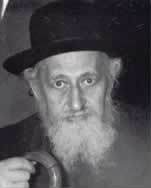By Rabbi Yair Hoffman for 5TJT.com
The Gemorah in Shabbos 133b tells us that the pasuk of zeh keili v’anvehu teaches us to perform Mitzvos in a beautiful way. It seems that this is, in fact, an obligation.
But is this a Torah obligation? Or is it a Rabbinic one?
It seems that there is a debate among the meforshim about this. Rashi in Sukkah 29b holds that it is a Torah obligation. Tosfos in Menachos 41b holds that it is derabanan.
What difference does it make? We will see in the next section.
UP TO ONE THIRD – WHAT DOES IT MEAN?
The Gemorah in Bava Kamma (9b) discusses the obligation to spend 33% on making a Mitzvah beautiful. But what does this mean exactly? How is it to be calculated? If one can purchase a non-beautiful esrog for $50 (the going price now for a minimum one) does that mean he is obligated to spend up to another $16.67 to purchase a mehudar one? Thus the total cost would be $66.67 (this is referred to in the Gemorah as milgav)? Or maybe the 33% refers to the total price. Thus $50 would be 2/3rds of what he has to spend – the total being $75 (this is referred to in the Gemorah as milbar)?
PLEASE HELP A VERY CHOSHUV HACHNASSAS KALLAH SITUATION
https://thechesedfund.com/zechornilah/hachnasaskallah
The Gemorah does not come up with a conclusive answer. The Rosh in Bava Kammah 7 rules like the former view – that it is 33% more of the original $50 total $66.67. Rabbeinu Chananel rules like the latter view – the total being $75. How does the Shulchan Aruch rule? He rules like the Rosh (See beis Yoseph OC 656). It is interesting to note that he rules in this manner because of the concept of Safek Derabanan lekulah – a doubt on a Rabbinic Mitzvah we rule leniently.
THE GREAT CHAKIRAH
Rav Velvel Soloveitchik zt”l (1886-1959), the Brisker Rav, in his writings on Nazir (2a) poses a question as to whether the concept of Hidur Mitzvah is a specific requirement for each and every Mitzvah? Or do we say that it is a general concept that is applicable across the board to all Mitzvos? In other words, is this pasuk of “veh keili v’anveihu” revealing to us a general concept that we must adhere to throughout the Torah?
Rav Velvel proves from a halacha in Bris Milah found in the Gemorah in Shabbos (133b) that it is a special requirement for each and every Mitzvah. How so? Because if he did not take his hand away, he removes the tzitzin (small protruding pieces of skin) that are not me’akaiv on account of hiddur Mitzvah. If it was a general Mitzvah, how would we know that Hiddur Mitzvah sets aside Shabbos?
PLEASE HELP A VERY CHOSHUV HACHNASSAS KALLAH SITUATION
https://thechesedfund.com/zechornilah/hachnasaskallah
WHAT IF HE DID IT WITHOUT HIDDUR?
What happens if he performed it in a manner that was not beautiful? Has he still fulfilled the Mitzvah? This too may be a debate. The Gemorah in Sukkah 11b states that it is a Mitzvah on account of Hiddur Mitzvah to bind the lulav. If he did not bind it, one has still fulfilled it. Tosfos “Lulav” in Sukkah 29b writes that Hiddur Mitzvah is not me’akaiv – that one still fulfills the Mitzvah even without it.
The Kapos Temarim (Yonah B. Yaakov) offers a defense of Tosfos’ attack on Rashi as saying that Rashi’s position is that the Torah placed the determination in the hands of the sages – and it may vary between each of the Mitzvos.
The Chasam Sofer (Sukkah 29b) is of the opinion that, according to Rashi, if the lack of Hiddur is in the very item of the Mitzvah itself – then it is invalid post facto, but otherwise it is valid b’dieved.
WHAT IF HE PERFORMED IT DISRESPECTFULLY?
What if he performed a Mitzvah, not only in a non-beautiful manner, but in a disrespectful desultory manner? The Pri Magadim in his Mishbetzes HaZahav 11:4 writes that it is pasul b’dieved. [See, however, OC 272:1 Biur Halacha “Ain” where he writes otherwise regarding wine].
May we merit to perform Mitzvos in the best manner that we can.
PLEASE HELP A VERY CHOSHUV HACHNASSAS KALLAH SITUATION
https://thechesedfund.com/zechornilah/hachnasaskallah
The author can be reached at [email protected]












4 Responses
What’s the point in all this, if the bottom line is always, “Ask your local rav and posek.”?
One point would be to at least understand the background before you ask your rav or poseik, as opposed to knowing nothing about it and just getting from your LOR a practical answer of what to do.
HaKatan–From a practical standpoint, there is absolutely no difference.
There’s a paragraph missing, in the section headed “WHAT IF HE DID IT WITHOUT HIDDUR?”, between the first and second paragraphs there’s very obviously a gap where there used to be paragraph that discussed the machlokes Rashi and Tosfos. It must have got deleted inadvertently during editing.